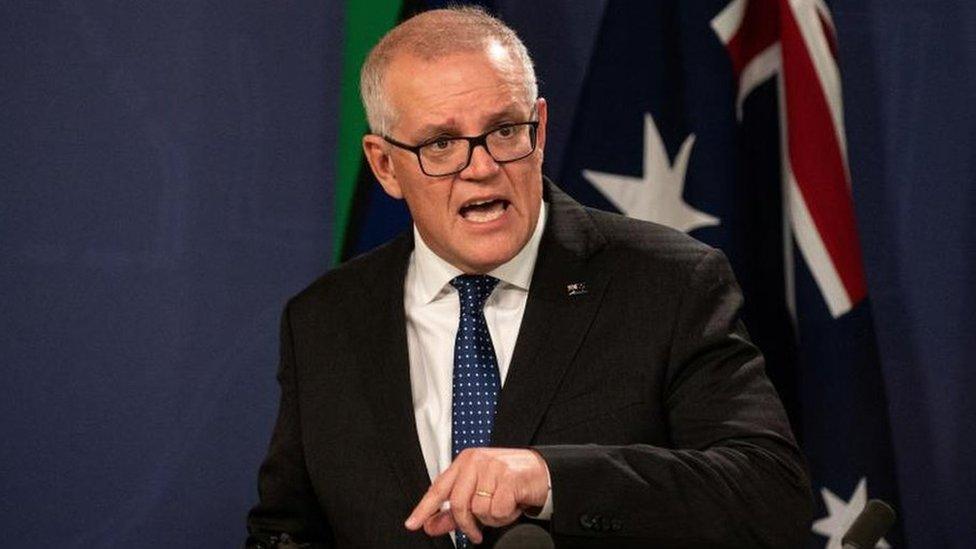Scott Morrison: Former Australian PM censured over secret ministries
- Published
Scott Morrison's secret roles while Australian PM "trashed our democracy", says PM Anthony Albanese
Former Australian Prime Minister Scott Morrison has been censured by the nation's parliament for giving himself secret powers while in office.
The historic motion follows a damning report which said his actions were "corrosive of trust in government".
It marks the first time a former prime minister has been censured by the House of Representatives.
Mr Morrison has defended appointing himself to several ministries, calling the censure "retribution" by opponents.
In August, it emerged that Mr Morrison had become joint minister for health, finance, treasury, home affairs and resources in the two years before he lost power in May.
Most ministers were unaware they were sharing portfolios with Mr Morrison and he has been widely criticised, including by close colleagues.
Mr Morrison - now a backbench MP - has said the decisions were made amid the "extraordinary times" of the pandemic.
An investigation found his appointments were legal, and that he used his extra powers only once - to overrule a minister in a matter unrelated to the pandemic.
But it ruled Mr Morrison "fundamentally undermined" responsible government. Another inquiry found that most of his appointments had "little if any connection to the pandemic".
The Albanese government has already promised new laws that would require any similar appointments to be publicly disclosed in future.
But Mr Albanese said the parliament also had a duty to condemn his predecessor's actions.
They put Australia on a "slippery slope" away from "precious" democracy, he said on Wednesday.
"The public didn't know something it was entitled to know... that undermined the functioning of this parliament, that undermined our democratic institutions."
Mr Morrison told parliament that with hindsight he believed his decisions had been "unnecessary" and he'd given them "insufficient consideration".
"None of us can claim to be infallible in such circumstances, and I do not," he said.
But he stopped short of an apology, and argued the censure was about "political intimidation" and "retribution".
Most of his centre-right coalition colleagues supported that view, but one MP, Bridget Archer, said she didn't accept Mr Morrison's explanation of his actions and supported the censure.
"And I'm deeply disappointed by the lack of genuine apology, or more importantly, understanding of the impact of these decisions," she said in parliament.
Former Home Affairs Minister Karen Andrews - one of the colleagues who unknowingly shared a portfolio with Mr Morrison - also abstained from the vote.
A censure is the parliament's way of formally expressing disapproval in an MP. Such motions are rare and largely symbolic, but they can have political consequences.
Related topics
- Published28 August 2022
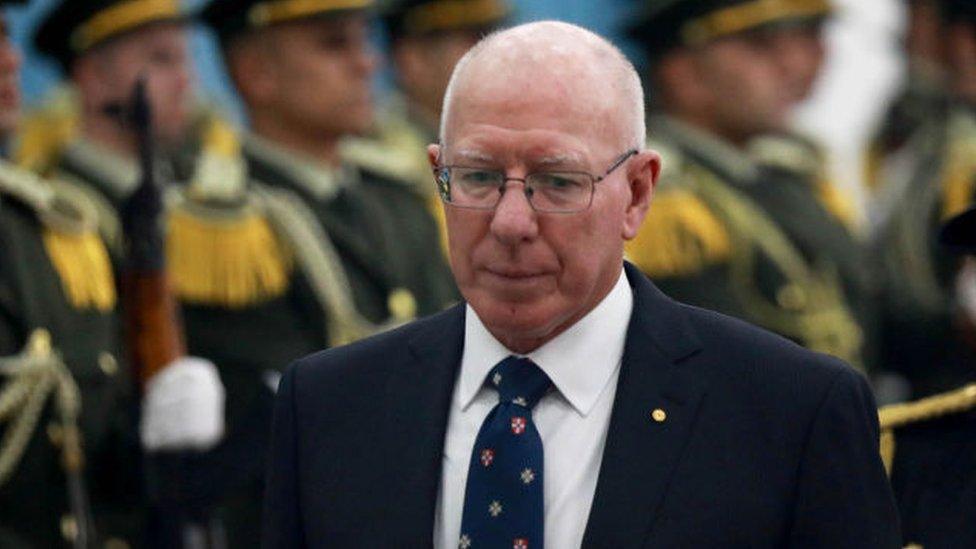
- Published21 May 2022
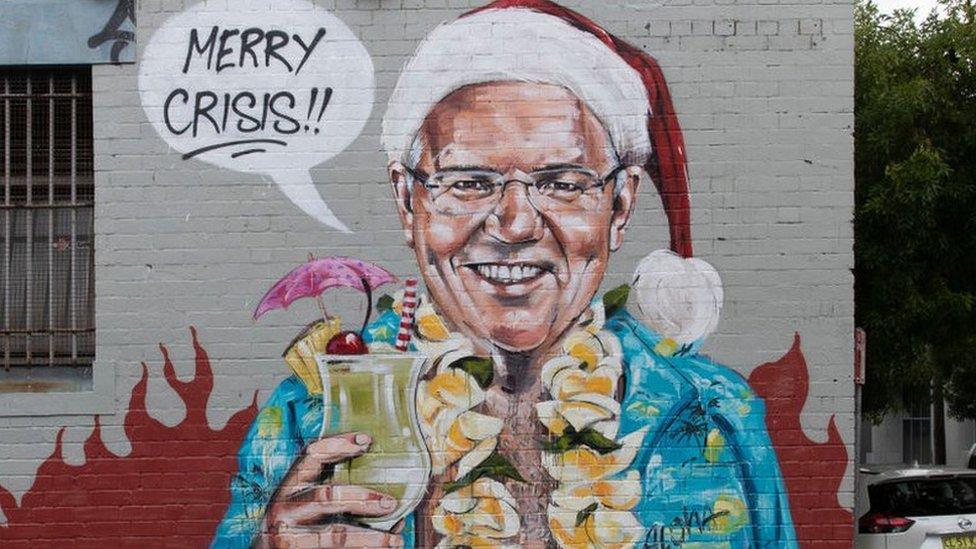
- Published18 August 2022
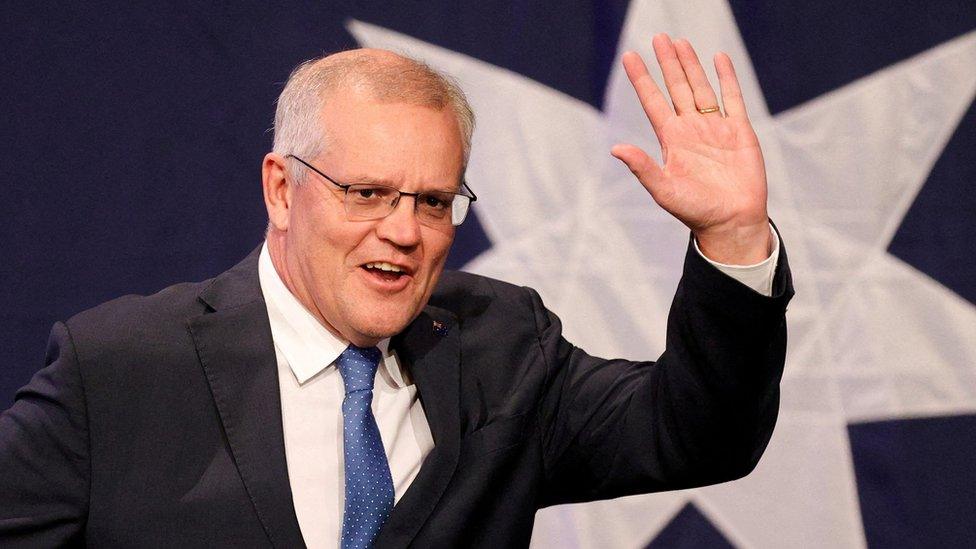
- Published23 August 2022
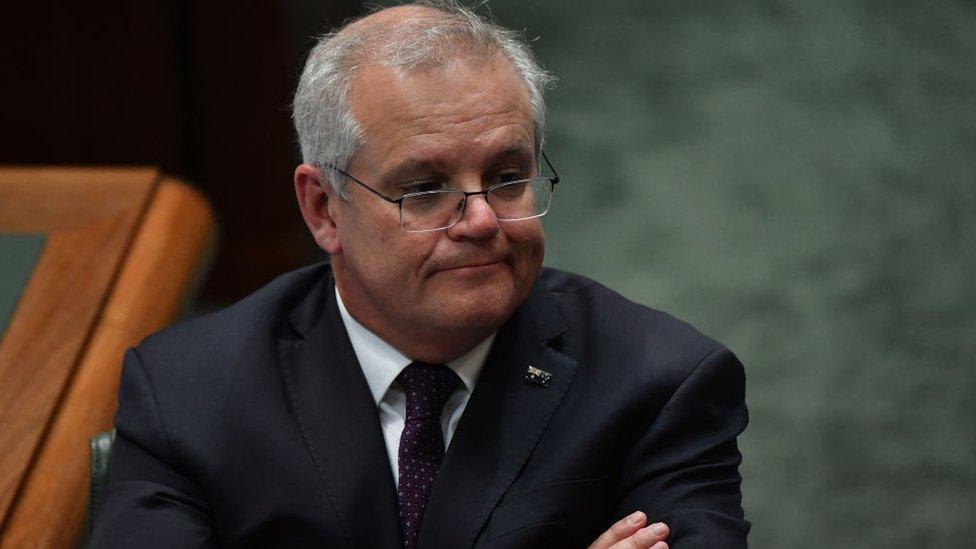
- Published25 November 2022
